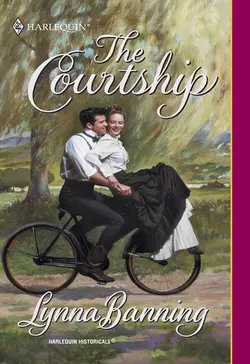The Courtship

Lynna Banning
Тип: электронная книга
Жанр: Современная зарубежная литература
Язык: на английском языке
Стоимость: 152.25 ₽
Статус: В продаже
Издательство: HarperCollins
Дата публикации: 16.04.2024
Отзывы: Пока нет Добавить отзыв
О книге: Temporarily displaced Southern belle Jane Charlotte Davis was desperate to make enough money to return home. So when town banker Rydell Wilder, a Northerner through and through, offered her a loan to start her own business, she jumped at the chance. Even though the man was too handsome–and too interested in her–for her peace of mind.…Once, Rydell Wilder had been the new, poor boy in town. Now he had the wealth and the means to get whatever he wanted. And what he wanted more than anything was Jane. But did he have a prayer of turning their business deal into a marriage contract?